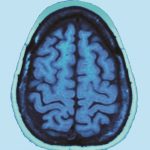MS Research Australia and MS ACT/NSW/VIC recently co-hosted the second of a series of MS Researcher Update webinars.
This webinar was presented by Dr Ollie Jay, from the University of Sydney. He presented on his recent work exploring whether people with MS get hotter during exercise, which is supported by a MS Research Australia Incubator Grant.
It has been well established that heat intolerance and associated fatigue have a large impact on the ability of many people with MS to remain within the Australian workforce. During hot weather, physicians will often recommend that people with MS minimise their exposure to hot environments and avoid intense physical work, to reduce the risk of elevations in core temperature and worsening of symptoms. However, we now know that exercise can be very helpful for people with MS, with benefits including improved muscle function and walking ability, reducing falls risk, but also improving well-being and reducing fatigue.
Dr Jay is conducting a study to understand exactly how heat regulation may be different in some people with MS, and to look for ways to improve this that could allow people to exercise safely. Specifically, this study aims to determine whether heat sensitivity is also associated with changes in core temperature and whole body sweating during exercise. The ability to sweat and the blood flow to the skin are each controlled by a separate system in the brain, and it is not known whether the overheating experienced by many people with MS is a result of problems in one, or both, of these systems.
The team will soon be looking for people with MS who have mild to moderate disability to participate in the study. Participants in the study will be asked to exercise to the best of their ability on a partly reclined bike for one hour, in a state-of-the-art climate chamber where conditions are set around 30°C, and 30% relative humidity. Preliminary results have shown that people with MS, when undertaking the cycling exercise, did not sweat as much during the exercise and also had a much higher body temperature after exercising than people without MS.
This information will be used to develop evidence-based guidelines for safe physical activity levels for people with MS throughout the hot summer months in Australia, and also to identify potential therapies or interventions to improve body temperature regulation (e.g. aerobic training, pharmacological interventions) of people with MS. There may be interventions that can help prevent the rise in body temperature, or reduce the amount of sweating needed.
For more information and opportunities to be a part of this study, which will be based at the University of Sydney, please contact researchers Georgia Chaseling (georgia.chaseling@sydney.edu.au) or Davide Filingeri (davide.filingeri@sydney.edu.au)
The Researcher Update webinars are a joint initiative with MS ACT/NSW/VIC and MS Research Australia, aiming to give the MS community the opportunity to hear about the latest social and applied research outcomes directly from the investigators.
The webinar recording can be viewed here https://youtu.be/71mNaGne1m4




